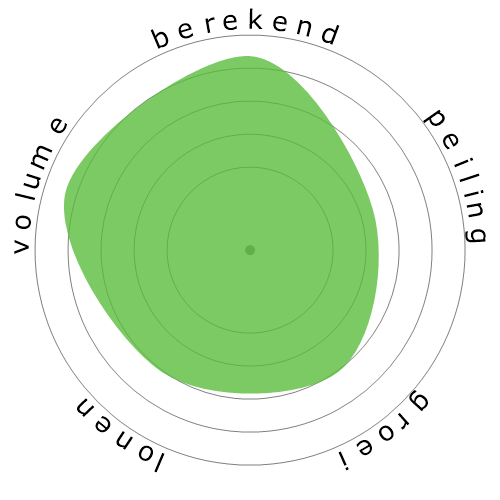Docenten Hoger Onderwijs
Waar Wilt U Hierna Heen Gaan?
Of, verken dit beroep in meer detail...


Wat laat deze sneeuwvlok zien?
Wat is dit?
We beoordelen banen op basis van vier factoren. Deze zijn:
- Kans op automatisering
- Banengroei
- Salarissen
- Aantal beschikbare posities
Dit zijn enkele belangrijke zaken om over na te denken bij het zoeken naar een baan.
Mensen bekeken ook
Berekend automatiseringsrisico
Minimaal Risico (0-20%): Beroepen in deze categorie hebben een lage kans op automatisering, omdat ze doorgaans complexe probleemoplossing, creativiteit, sterke interpersoonlijke vaardigheden en een hoge mate van handvaardigheid vereisen. Deze banen omvatten vaak ingewikkelde handbewegingen en precieze coördinatie, waardoor het moeilijk is voor machines om de vereiste taken te repliceren.
Meer informatie over wat deze score is en hoe deze wordt berekend, is beschikbaar hier.
Deze pagina is een categoriepagina die verschillende beroepen omvat. Om een score voor deze categorie te bepalen, berekenen we het gemiddelde van alle beroepen erin.
Raadpleeg de afzonderlijke beroepspagina's voor meer informatie over elk beroep dat in deze categorie is opgenomen, je kunt ze zien vermeld. hier.
Gebruikerspeiling
Onze bezoekers hebben gestemd dat ze niet zeker weten of dit beroep zal worden geautomatiseerd. Echter, werknemers kunnen mogelijk geruststelling vinden in het geautomatiseerde risiconiveau dat we hebben gegenereerd, dat een kans van 17% op automatisering aangeeft.
Wat denk je dat het risico van automatisering is?
Wat is de kans dat Docenten Hoger Onderwijs binnen de komende 20 jaar vervangen zal worden door robots of kunstmatige intelligentie?
Groei
Het aantal 'Postsecondary Teachers' vacatures zal naar verwachting stijgen met 6,8% tegen 2033
Totale werkgelegenheid en geschatte vacatures
Bijgewerkte prognoses zijn verschuldigd 09-2025.
Lonen
In 2023 was het mediane jaarloon voor 'Postsecondary Teachers' $ 82.270, of $ 40 per uur
'Postsecondary Teachers' werden 71,2% hoger betaald dan het nationale mediane loon, dat op $ 48.060 stond.
Lonen in de loop van de tijd
Volume
Vanaf 2023 waren er 1.394.110 mensen in dienst als 'Postsecondary Teachers' binnen de Verenigde Staten.
Dit vertegenwoordigt ongeveer 0,9% van de werkende bevolking in het hele land.
Anders gezegd, ongeveer 1 op de 108 mensen is werkzaam als 'Postsecondary Teachers'.
Functieomschrijving
SOC Code: 25-1000
Opmerkingen (11)
- What value does society place on education
- The value placed in human connection = Need of a teacher
- How widespread the gap in early learning gets
- Equitable access to learning/instructional resources.
While it is true that people often seek help from others to understand complex topics, the argument that robots cannot do this is not entirely accurate. With the advent of advanced artificial intelligence, robots and other digital technologies are becoming increasingly capable of answering complex questions and providing guidance to people.
In fact, AI-powered platforms such as chatbots and virtual assistants are already being used in many industries, including education, to help students and teachers with their questions and doubts. These systems are designed to understand natural language and can provide personalized, accurate responses to a wide range of queries.
Furthermore, robots and other forms of AI can potentially provide benefits that human teachers cannot. For example, they can work 24/7 and provide consistent answers to the same questions, eliminating the variability and subjectivity that can arise with human teachers. They can also leverage large amounts of data and use advanced algorithms to personalize their responses to each individual's needs and learning style.
Overall, while human teachers may continue to play a vital role in education, it is not accurate to say that robots cannot provide similar levels of guidance and support. As AI continues to advance, it is likely that robots will increasingly be used to complement and enhance human teaching, rather than replace it entirely.
Reageer op reactie